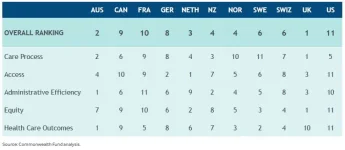Slavister
DP Veteran
- Joined
- Jun 8, 2018
- Messages
- 14,040
- Reaction score
- 11,649
- Gender
- Undisclosed
- Political Leaning
- Undisclosed
Nope factually correct. I gave the link that proves it.
Nope. The link you gave proves absolutely nothing. It's an opinion piece looking at just at few recent years. I did not even bother to check its numbers after seeing that. Either way, I think the links I gave are more relevant.
Regarding your increasing demand statement, that does NOT change anything in what I presented. It cost $X in the past for healthcare for an individual. Now it costs $X*Y for SAME set of services (and thus for same-aged) individual and Y is higher than inflation by amounts stated. So, yes, demand increased and so did the prices, but aside from similar demographics applying to other countries, costs are still going up out of control and will for foreseeable future.
No its not the related problem..
Definitely is! Related to how to-high healthcare costs negatively affect patients.
But your graph is largely explained by 1. Not having everyone covered.. 2. American work situations.. like afraid to take off work to go to the doctor to be given a "point" even though by law they are allowed to go.
Wrong. The graph is not explained by being afraid to take off work. Where did you get that from? Imagined it? First sentence in the article: "An 11-country survey finds that adults in the United States are far more likely than those in other countries to go without needed care because of costs and to struggle to afford basic necessities such as housing and healthy food."
Not really.. you said they payed a higher percentage of their budget on medical needs. In any case.. their percentage of out of pocket costs is dropping.
You are confused again. Percentage is NOT dropping. Percentage of budgets and dollar outlay are BOTH increasing. Your only statement MIGHT be that percentage of what patients cover vs what insurance covers is decreasing, which is (a) irrelevant and (b) I did not bother to check because it's irrelevant.
yep. And some do worse.
None do worse on a per DOLLAR SPENT basis.
Yep.. you have made that argument and I have shown over and over again why that's a false argument. One.. we are not "propping up fat".. The rate of increase in healthcare has been because of DEMAND.. large increases in demand.. which you want to ignore. AND you ignore that the government has actually taken large steps to DECREASE reimbursement.. even though DEMAND has been increasing.
I did not ignore it. You did not prove anything. You claimed that increases are purely due to demand increase but you did not show it to be the case. Either way, (a) other countries have similar demographics, and (b) we are still paying more than any other country - i.e. for healthcare dollar spent, we get less than anyone else.
Your argument that there is fat.. is based on the premise.. "Well.. well.. we pay more than other countries"... that's where you claim there is fat. WELL.. we pay a lot of wages more than other countries. IF we followed your argument.. well then.. we should all go lower wages for everyone to say.. a dollar an hour.. because why are we "paying for that fat".. when countries like mexico and china pay less.
You yourself have been pointing out how we spend 18% of our GDP on healthcare, whereas rest of the world is nowhere close. That accounts for all the wage disparities you just wrote about. If we spent same percentage as rest of countries, our wages will still be higher, proportionally.
Yeah and again the lie. YOU cannot get your savings by "cutting inefficiencies".. heck even yourself have indicated that providers are going to either lose jobs or they are going to take pay decreases... that's not "inefficiencies"..
Lies. I never said providers would lose jobs. I said their pay would decrease. And yes, that's FAT. And unnecessary billing personal jobs and private insurance jobs (those are indeed lost) are FAT too. And I also described many substantial inefficiencies. You did not buy them but physicians DO (as I showed with links for administrators related ones) and so does rest of world (related to getting healthcare education faster/cheaper). Again, I know you did not buy it, but at this point we are just going in circles where you keep repeating they are not enough and I keep saying they are a good start and ARE large (per links) and we can do other things too that I mentioned to fill any remaining gap.
You can refer to my list here.
Last edited:

